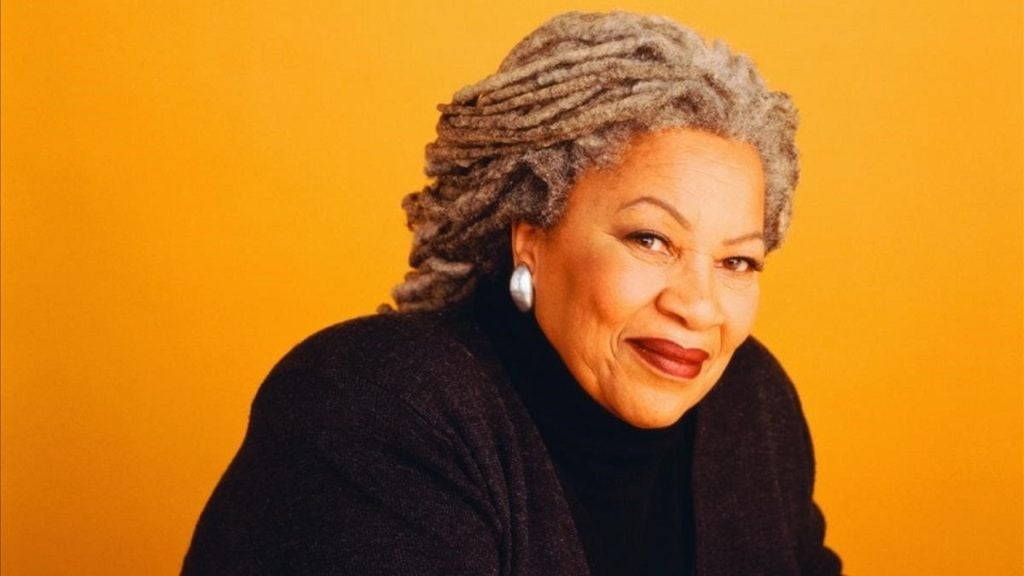On a misty Monday morning, when the large wooden benches in my college classroom were still freshly unoccupied and the sun shone softly through the college’s semi-transparent sliding windows, Pecola Breedlove’s voice rang in my mind while I was sifting through The Bluest Eye. Pecola is the main protagonist in Toni Morrison’s first seminal novel, The Bluest Eye. I read the novel when I was nineteen. If I was a few years older or a few years younger, I would like to believe, the shift in perception it suggested through the encapsulating atmosphere of the novel, would still exist but not as poignantly.
Morrison’s writing is much like stepping into an intricately planned museum, where each brick, painting and artefact is cultivated to evoke a particular feeling and highlight social friction that precedes and succeeds it. In a Paris Review article, Morrison was asked ‘Do you write to figure out exactly how you feel about a subject?’ and she replies, “No, I know how I feel. My feelings are the result of my prejudices and convictions like everybody else’s. But I am interested in the complexity, the vulnerability of an idea. It is not “this is what I believe,” because that would not be a book, just a tract. A book is “this may be what I believe, but suppose I am wrong . . . what could it be?” Or, “I don’t know what it is, but I am interested in finding out what it might mean to me, as well as to other people.”
Toni Morrison was born in Ohio in the 1930s and was brought up with an immersive appreciation of her Black heritage. She was the first African American woman in the history of the world to win the Nobel Prize for Literature in 1993. In Morrison’s words, “The most valuable point of cultural (or racial) distinctions is its language——its unpoliced, seditious, confrontational, manipulative, inventive, disruptive, masked and unmasking language”
Morrison has left us all on this planet with an abundance of emotion to move and mould our souls. After The Bluest Eye, Sula and Song of Solomon followed, along with eight other subsequent novels. Her death at eighty eight years old marks the end of an era for the world of literature. Her legacy lives in her powerful metaphors, structurally idiosyncratic writing, and the lives she has impacted through her influential teaching and emphatic existence. Morrison’s career as a novelist and essayist started when she contributed as a textbook editor in New York in the late 1960s. She quipped, “It wasn’t really writing,” on a PW profile in 1987; outlining the initial journey of her first novel.
In an article from the conversation, Paul Giles writes, ‘Morrison sought, in both her fiction and non-fiction, to expose the “national amnesia” underlying and often unconscious forms of racism.’
Morrison explicitly talks about prejudice, especially racial prejudice towards black women in her novels. Beauty standards and generational trauma is also habitually discussed by her.
On her influences, Morrison stated in a December PW feature, “Gabriel García opened the world for me,” and “When I read One Hundred Years of Solitude, it was a wide-open door. I could put reality and mythology together in a way that was so assumptive and real. I was sneaking up on it in Sula but it was like some road was beckoning, and I wouldn’t take it. It was a risk. Then, after Márquez, it was open to me, and I was totally in control of it.” Morrison’s writing fills in hollow spaces with the sound of a story never told before. It is raw, infused with African American heritage and powerfully embedded in language.
One of my favourite quotes by her is “At some point in life the world’s beauty becomes enough. You don’t need to photograph, paint, or even remember it. It is enough,” and that is why she remains to be one of the greatest writers of all time. Her ability to create between these rigidly cemented walls of writing gives her readers and the nature and structure of literature an endlessly optimistic view. It evolves, the use of any structure——it’s matrix——and what we borrow from it and how we use it as a tool to navigate the socio-political landscape of our world.
Toni Morrison will forever be enshrined in the sands of time, through her works and teachings, as a person of inexhaustible spirit and innovation who still moulds perceptions about the world in its chaotic state of unit and power.
Some of her most recommended works for anyone who wants to start reading her brilliant writing are:-
- The Bluest Eye (1970)
- Jazz (1992)
- Beloved (1987)
Manogni T is an Editorial Intern at One Future Collective.
